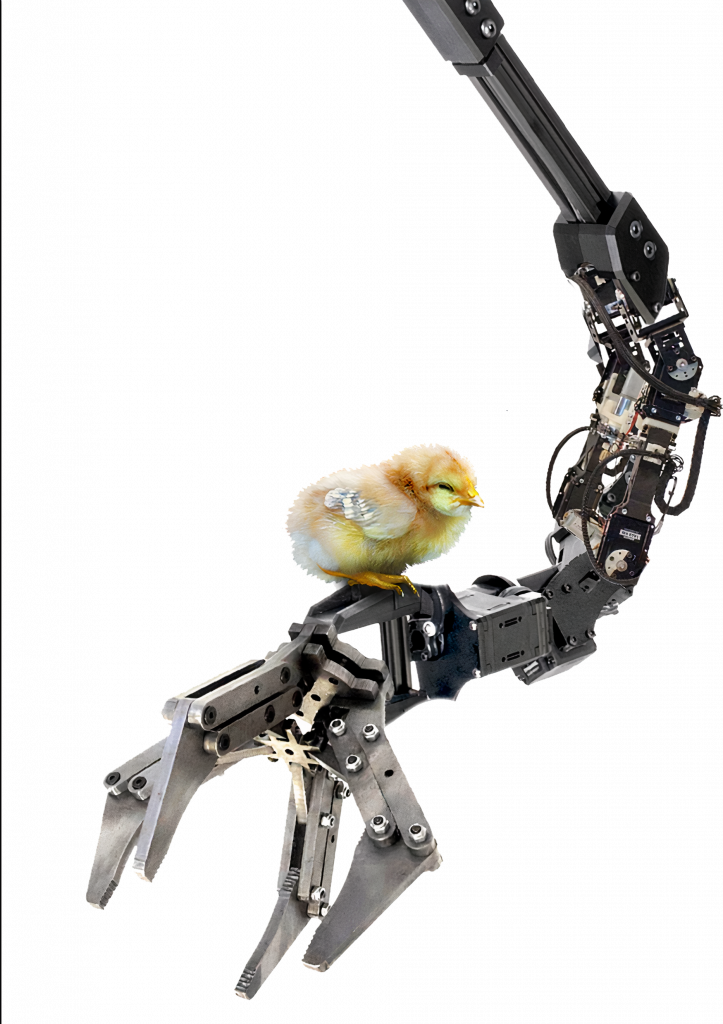Gallus Gallus Roboticus

The presentation of Gallus Gallus Roboticus at MFRU was as an incubation, rehabilitation, educational and continued research space. Rescued battery hens were rehabilitated before being rehomed to a free range space, while the Artificial Intelligence was trained on complex real-world, diverse terrain (“free range”) data. The laboratory invited various activities relating to farming, technology and more-than-human well being, while aiming to shift public relationships to these fields.
During the artwork’s production, an investigation into the state of the art in robotics and AI led to the development of custom open-source software for designing robot behaviour, making robotics more accessible to beginners. Audio analysis tools and techniques were also developed, in conjunction with Agritech scientists, to characterise the vocalisations of chickens and flocks, and estimate their levels of stress, alerting farmers to potential concerns in their environs. A significant amount of research has also been conducted on developments in cutting-edge Agritech which prioritises humane-ness and animal welfare over exploitation, such as the accelerating field of in-ovo sex detection, machines used for the socialisation of factory-farmed animals, and sensor-based systems used to track welfare.
Wondering whether Gallus gallus domesticus, the domesticated chicken, could be considered – within the framework of the Capitalocene – the most or least successful bird from an evolutionary perspective, as well as a prized artefact of human biotechnology, the project stems from a morbid fascination with the current and historical relationship between chickens and humans and the intricacies and problematics of technological exploitation, selective breeding, symbiosis, domestication, animal rights, farming practices, and food safety and security which riddle this narrative.
A case of economics outrunning ethics is present in both the narratives of the chicken and artificial intelligence. Gallus Gallus Roboticus thus speculates whether machines are perhaps more capable of being humane than humans – and, conversely, whether an AI trained by chickens could be more ethical than one designed by humans.
Production: MKC Maribor (Miha Horvat) | konS ≡ Platform for Contemporary Investigative Art
Collaborators: Matej Modrinjak, dr. Maksimiljan Brus
Partner of the project: Faculty of Agriculture and Life Sciences, University of Maribor